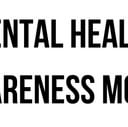An article in the Fall 2005 edition of the magazine Amnesty International examines whether mentally ill defendants should be exempted from the death penalty, especially in light of the Supreme Court’s rulings exempting juvenile and mentally retarded offenders. The article quotes Ohio Northern University law professor Victor Streib: “The general public too often assumes that only the seriousness of the crime is relevant to the punishment, but the (Supreme) Court has repeatedly held that both the serious(ness) of the crime and the character and background of the defendant must be considered in the sentencing decision. If certain mentally ill defendants think and act like juveniles or the mentally retarded, then they should be excluded from death row.”
Estimates of the percentage of people on death row with mental illness vary widely, and various illnesses ranging from paranoid schizophrenia and post-traumatic stress syndrome to bi-polar disorder and depression could be included in the definition of mental illness. Joshua Marquis, an Oregon district attorney and strong supporter of the death penalty, acknowledged the close tie between mental illness and the death penalty: “The vast majority of people on death row suffer from a mental disorder of some kind,” though he would not favor a broad exemption.
The American Bar Association’s Section of Individual Rights and Responsibilities has established a task force examining the issue. The proposals developed by this task force have won endorsements from organizations such as the National Alliance for the Mentally Ill, the American Psychological Association, and the American Psychiatric Association. In discussing the ABA’s work on this issue, New York attorney and task force member Ronald Tabak stated, “We are not trying to excuse the misconduct of these people. If we were trying to do that, we wouldn’t allow them to be punished at all. (But) the extent of blameworthiness, the extent to which they can be held among what’s sometimes called ‘the worst of the worst,’ is diminished by their mental illness.”
(Dan Malone, “Cruel and Inhumane: Executing the Mentally Ill,” Amnesty International, Fall 2005, p.20 – 23). See Mental Illness.
To receive weekly emails of DPIC’s “What’s New” items, click here.



